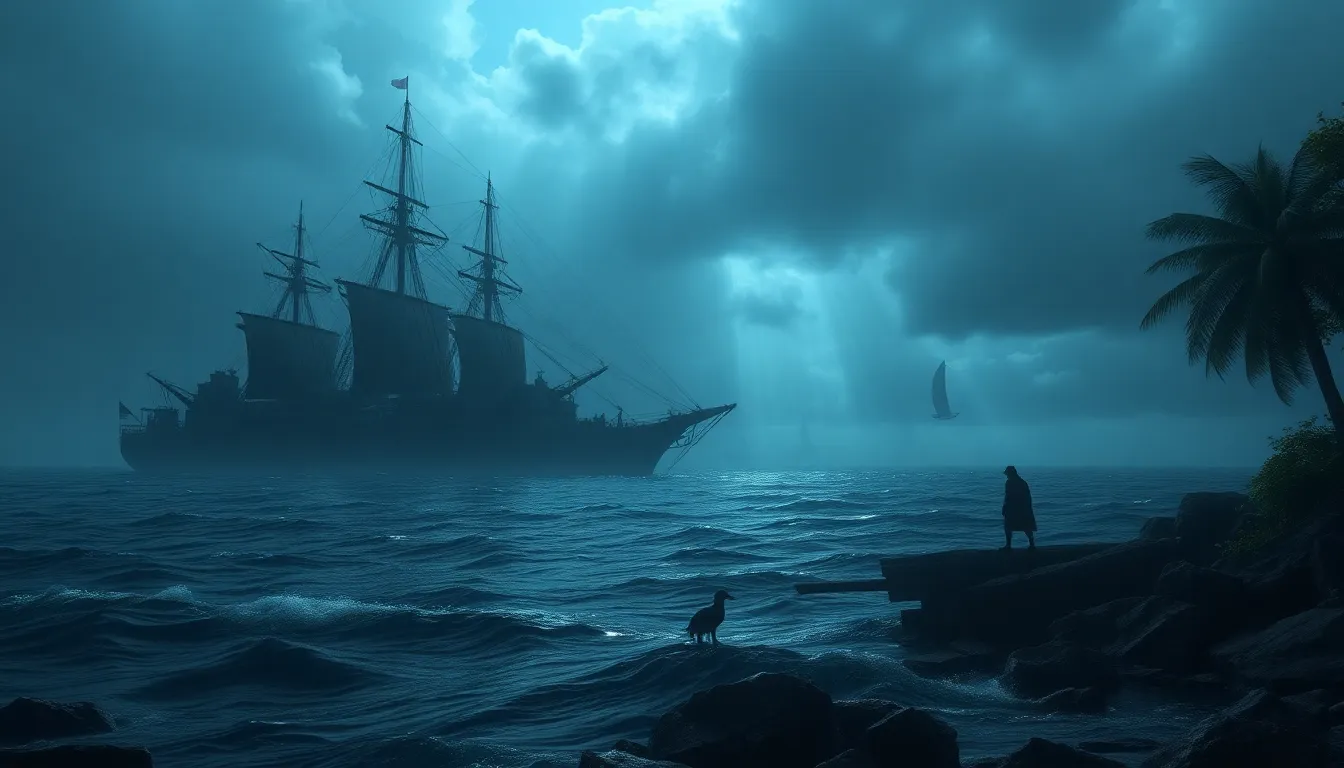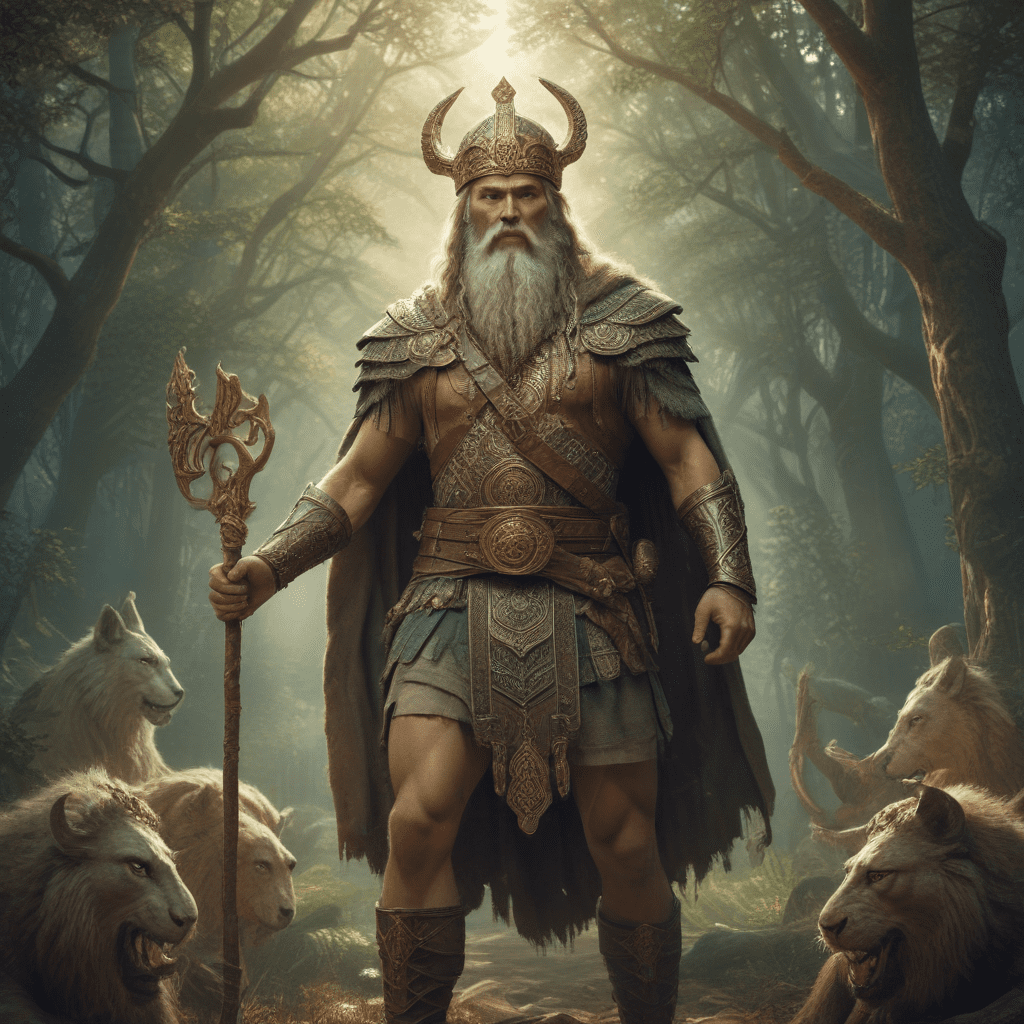The Island of the Lost: Myths of Shipwrecked Souls
I. Introduction
Throughout history, shipwrecks have captured the imagination of cultures around the world, serving as poignant symbols of isolation, transformation, and the unknown. From ancient myths to modern literature, the concept of a lost island inhabited by shipwrecked souls evokes a sense of mystery and fascination. This article aims to explore the various myths surrounding shipwrecked souls, examining the cultural, psychological, and artistic dimensions of the “island of the lost.”
II. Historical Context of Shipwrecks
Shipwrecks have been a significant part of maritime history, often leading to dramatic tales that resonate deeply with human experience. Some notable shipwrecks include:
- The Titanic (1912) – A tragic event that has inspired countless stories and films.
- The Edmund Fitzgerald (1975) – A freighter that sank in Lake Superior, becoming a part of American folklore.
- The Vasa (1628) – A Swedish warship that sank on its maiden voyage, now preserved as a museum piece.
These events not only highlight the dangers of the sea but also have cultural significance, often leading to the creation of legends and myths that shape societal views on maritime exploration.
The role of maritime exploration in shaping myths cannot be overstated. As explorers ventured into uncharted waters, they encountered both the beauty and peril of the ocean, leading to stories of lost ships and mysterious islands. Communities affected by shipwrecks often experienced psychological trauma, which contributed to the creation of maritime legends that fused reality with the supernatural.
III. The Mythological Island: A Place of Transformation
The concept of the “island of the lost” varies across cultures, often acting as a liminal space where the boundaries between life and death blur. For example:
- In Greek mythology, the island of Calypso serves as a place of temptation and transformation for Odysseus.
- The Land of the Dead in various cultures represents a final resting place for souls lost at sea.
These islands often symbolize a journey of self-discovery or a trial that must be overcome. Survivors of shipwrecks are frequently portrayed as being forever changed by their experiences, illustrating the transformative power of isolation.
IV. Folklore and Legends of Shipwrecked Souls
Many cultures have rich traditions of folklore surrounding shipwrecks and the souls lost at sea. Some popular myths include:
- Odysseus’ journey in “The Odyssey,” where he encounters various mythical beings and challenges on his way home.
- The legend of the Flying Dutchman, a ghost ship doomed to sail the seas forever, carrying the souls of its crew.
- Local lore about ghostly apparitions of sailors appearing near shipwreck sites, believed to seek closure or warn others.
A comparative analysis reveals that while the specifics of these myths differ, the underlying themes of loss, yearning, and the quest for redemption remain constant across cultures.
V. Psychological Interpretations of Shipwreck Myths
The symbolism inherent in shipwreck myths speaks to universal human experiences. Isolation, survival, and the search for meaning are recurring motifs that resonate deeply within us. The archetype of the lost soul serves as a powerful metaphor for:
- The struggle against despair and hopelessness.
- The desire for connection and belonging.
- The confrontation with mortality and the unknown.
These myths reflect our fears and hopes, illustrating how humanity grapples with the concept of life and death, particularly in the face of loss.
VI. The Influence of Literature and Art
Shipwrecks have inspired numerous iconic literary works and artistic representations. Notable examples include:
- “The Tempest” by William Shakespeare – A tale of shipwreck, magic, and redemption on a remote island.
- “Life of Pi” by Yann Martel – A modern exploration of survival and spirituality following a shipwreck.
- Visual Arts – Artists like J.M.W. Turner and Caspar David Friedrich have depicted shipwrecks to evoke emotion and explore themes of nature’s power.
The evolution of shipwreck narratives through different artistic mediums showcases the enduring fascination with these themes, reflecting changing societal perceptions and artistic expressions over time.
VII. Modern Perspectives: Shipwrecks in Contemporary Culture
In recent years, shipwreck myths have experienced a resurgence in contemporary culture. This revival can be seen in:
- Films such as “Cast Away” and “The Life of Pi,” which explore themes of survival and self-discovery.
- Television series that incorporate maritime disasters and their aftermath, contributing to the mythos of the lost.
- The role of social media in sharing real-life shipwreck stories, allowing for a new form of storytelling that blends personal narrative with myth.
Contemporary society often reinterprets traditional myths, creating a dialogue between past and present that enriches our understanding of shipwrecks and their significance.
VIII. The Intersection of Reality and Myth
Many real-life shipwreck stories have inspired myths and legends. Examples include:
- The wreck of the USS Indianapolis, which became a symbol of sacrifice and survival.
- The sinking of the Lusitania, which not only led to changes in maritime law but also sparked a wave of myths about the ship’s ghost.
Environmental factors, such as storms and navigational hazards, play a significant role in shipwreck occurrences, blending the lines between reality and myth. Maritime law and rescue missions also shape narratives, as they often involve heroic acts and tragic losses that become enshrined in folklore.
IX. Conclusion
In conclusion, the myths of shipwrecked souls and the island of the lost serve as powerful symbols of human experience. They encapsulate our fears, hopes, and the eternal quest for meaning in the face of adversity. From historical accounts to modern reinterpretations, these stories continue to resonate, reminding us of the profound impact that shipwrecks have had on culture and psychology throughout the ages.




